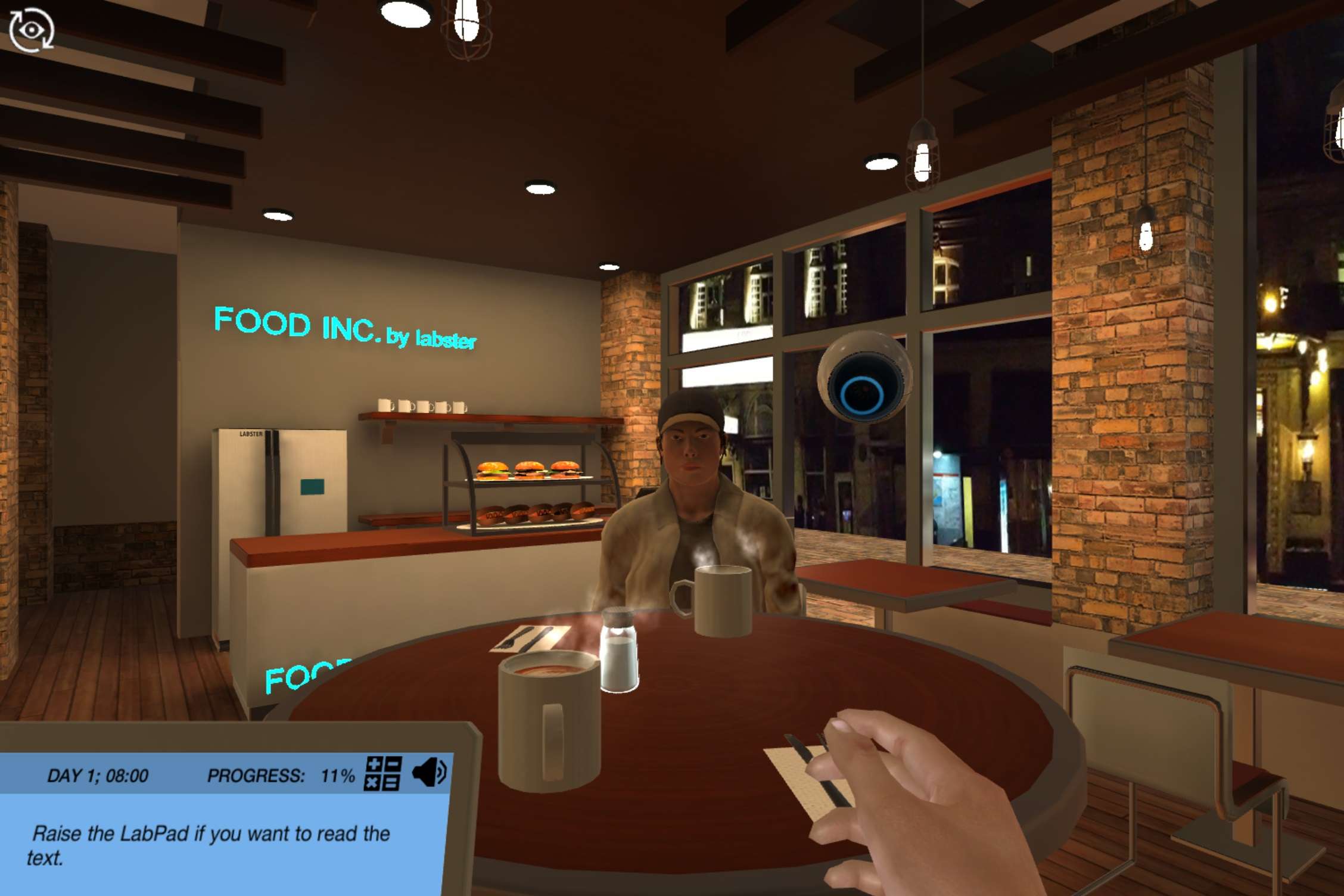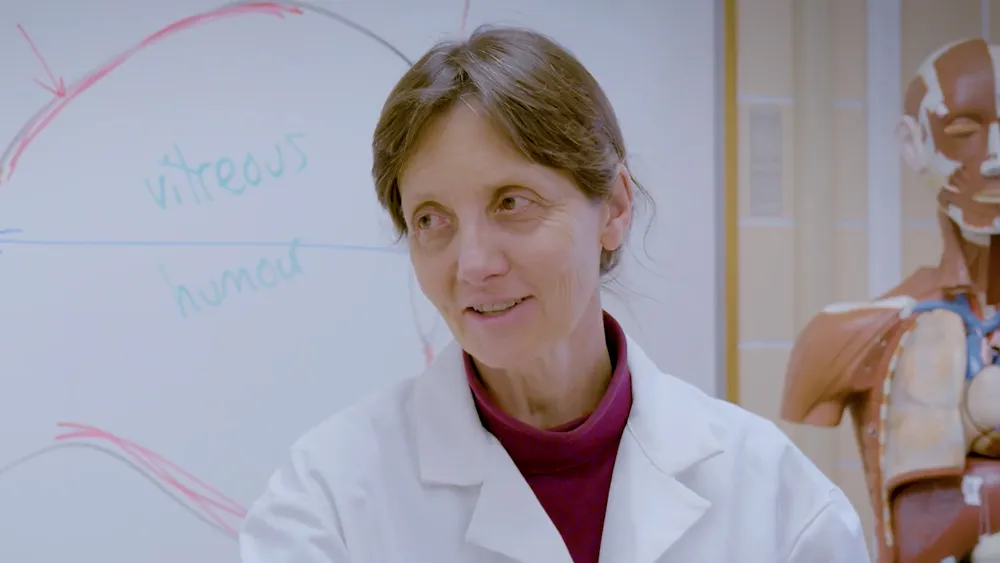Heading 1
Heading 2
Heading 3
Heading 4
Heading 5
Heading 6
Lorem ipsum dolor sit amet, consectetur adipiscing elit, sed do eiusmod tempor incididunt ut labore et dolore magna aliqua. Ut enim ad minim veniam, quis nostrud exercitation ullamco laboris nisi ut aliquip ex ea commodo consequat. Duis aute irure dolor in reprehenderit in voluptate velit esse cillum dolore eu fugiat nulla pariatur.
Block quote
Ordered list
- Item 1
- Item 2
- Item 3
Unordered list
- Item A
- Item B
- Item C
Bold text
Emphasis
Superscript
Subscript
About This Simulation
Learn about the nitrogen cycle and help a local restaurant owner understand the complexities of sustainable crop production. Model nitrogen moving between stages of the cycle and then balance food production with environmental impact.
Learning Objectives
- Model how nitrogen moves between organisms and components of the physical environment
- Explain the wider impact of changes at any one point in the nitrogen cycle
- Identify examples of human influence on the nitrogen cycle
About This Simulation
Lab Techniques
Related Standards
- ESS3.C-H1
- Energy and Matter
- Biology C.6
Learn More About This Simulation
The Nitrogen cycle is essential to life as nitrogen is not only vital for food production, it’s also a crucial part of DNA. In this simulation, you will learn all about the nitrogen cycle and help restaurant owner Alex understand why food suppliers cannot simply increase food production without considering the broader impacts it has on the nitrogen cycle. First, you’ll learn about the different stages of the Nitrogen cycle and then identify human influences. Later you’ll assume the role of the local food suppliers managing their crop production. Will you be able to balance the demand for food without negatively impacting the local ecosystem?
Discover the five stages of the nitrogen cycle
Learn all about the fixation, nitrification, ammonification, assimilation, and denitrification stages of the nitrogen cycle in an interactive, exploratory activity! Through the magic of learning in a virtual lab, you can jump into the nitrogen cycle at any stage and model its flow. You will discover the importance of different organisms and abiotic factors, and the role they play in each stage. Do not fear making mistakes - you will be given instant feedback throughout to help you understand and figure out the placement of each part of the cycle. You will then look at how different human influences, such as using synthetic fertilizers or burning fossil fuels, can impact nitrogen in the environment. The knowledge you will gain about the cycle will be vital for the next activity where you will assess a real-life environmental predicament!
Balance food production and nitrogen pollution
Assume the role of a food producer aiming to supply enough food for the restaurant in the local city, while attempting to minimize environmental impact. Use an interactive 3D model on the futuristic holo-floor to manage the various parameters of food production throughout a condensed four-year cycle. Make choices on crop rotation and fertilizer to discover the implications of each on the environment. Balance is essential - you will look at how pollution in one area can travel to another, and even affect local aquatic life. After the four-year cycle has ended, you’ll find out if you were able to maintain the balance. If you aren’t happy with your result, you’ll get the chance to play again and discover a different approach.
Keeping the balance
At the end of the simulation, you’ll inform restaurant owner Alex that balance is needed, and there are no simple solutions for increasing food production while minimising environmental impact!
For Science Programs Providing a Learning Advantage
Boost STEM Pass Rates
Boost Learning with Fun
75% of students show high engagement and improved grades with Labster
Discover Simulations That Match Your Syllabus
Easily bolster your learning objectives with relevant, interactive content
Place Students in the Shoes of Real Scientists
Practice a lab procedure or visualize theory through narrative-driven scenarios


FAQs
Find answers to frequently asked questions.
Heading 1
Heading 2
Heading 3
Heading 4
Heading 5
Heading 6
Lorem ipsum dolor sit amet, consectetur adipiscing elit, sed do eiusmod tempor incididunt ut labore et dolore magna aliqua. Ut enim ad minim veniam, quis nostrud exercitation ullamco laboris nisi ut aliquip ex ea commodo consequat. Duis aute irure dolor in reprehenderit in voluptate velit esse cillum dolore eu fugiat nulla pariatur.
Block quote
Ordered list
- Item 1
- Item 2
- Item 3
Unordered list
- Item A
- Item B
- Item C
Bold text
Emphasis
Superscript
Subscript
A Labster virtual lab is an interactive, multimedia assignment that students access right from their computers. Many Labster virtual labs prepare students for success in college by introducing foundational knowledge using multimedia visualizations that make it easier to understand complex concepts. Other Labster virtual labs prepare learners for careers in STEM labs by giving them realistic practice on lab techniques and procedures.
Labster’s virtual lab simulations are created by scientists and designed to maximize engagement and interactivity. Unlike watching a video or reading a textbook, Labster virtual labs are interactive. To make progress, students must think critically and solve a real-world problem. We believe that learning by doing makes STEM stick.
Yes, Labster is compatible with all major LMS (Learning Management Systems) including Blackboard, Canvas, D2L, Moodle, and many others. Students can access Labster like any other assignment. If your institution does not choose an LMS integration, students will log into Labster’s Course Manager once they have an account created. Your institution will decide which is the best access method.
Labster is available for purchase by instructors, faculty, and administrators at education institutions. Purchasing our starter package, Labster Explorer, can be done using a credit card if you are located in the USA, Canada, or Mexico. If you are outside of North America or are choosing a higher plan, please speak with a Labster sales representative. Compare plans.
Labster supports a wide range of STEM courses at the high school, college, and university level across fields in biology, chemistry, physics, and health sciences. You can identify topics for your courses by searching our Content Catalog.















